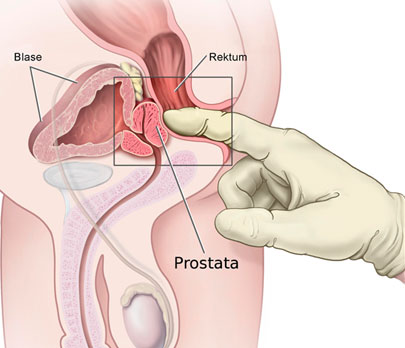The prostate is a small gland about the size of a walnut, located below the urinary bladder of men and surrounds the urethra (the tube through which urine passes out of the body). It has an important function in male reproduction.
After the age of 50 years, prostate problems are very common. Due to the action of the male sex hormone, the prostate enlarges. Prostatic enlargement is benign in most individuals. However, the enlargement can also attain malignant proportion in some patients.
BENIGN PROSTATIC HYPERTROPHY (BPH)
In benign enlargement of prostate the large gland may press over the urethra and eventually obstruct the flow of urine. Frequent urination, especially during night, sense of incomplete urination, dribbling and finally complete cessation of urination are the usual symptoms. An enlarged prostate also predisposes to infection in the urinary tract.
Enlarged prostate can be detected by digital rectal examination even in early stages. An ultrasonographic examination can confirm prostatic enlargement and also can measure how much urine is left in the bladder after urination. Mild enlargement of the prostate can be managed by medical treatment with drugs such as prazosin, terazosin and doxazocin.

However, drug treatment is not curative. Large prostates with symptoms do not respond to drug treatment and should be subjected to surgical resection. Enlarged prostate nowadays is removed through the urethral route (trans urethral resection of prostate – TURP) and abdominal operation is nearly obsolete.
PROSTATE CANCER

Prostate cancer is a common cancer among men after the age of 65.
Symptoms of cancer initially are similar to those caused by BPH. Untreated cancer spreads to all parts of the body leading to pain, discomfort and ultimately death. Regular check-up by rectal examination is the best method of detecting prostate cancer early and in curable stages before symptoms appear.
Definitive diagnosis of prostatic cancer necessitates a biopsy (simple surgical procedure in which a small piece of the prostate tissue is removed with a needle and examined under a microscope). In the event of a positive result, further investigations are required to determine the extent of the spread of the disease.
Surgery, hormone therapy and radiotherapy are the different methods of treatment for prostate cancer. The result of surgery however depends on the stage of the disease.
The best protection against prostate problems is to have regular medical check-ups that should include a rectal examination of the prostate. See your doctor promptly if symptoms such as a frequent urge to urinate, difficulty in urinating, or dribbling occurs. Waiting until severe symptoms appear may result in serious and sometimes life-threatening complications.